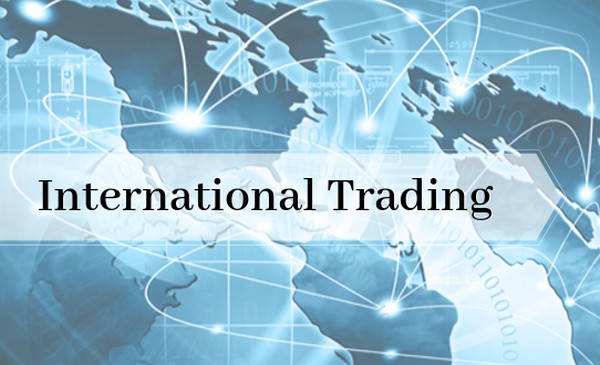Technological disruption isn’t new for the global trade industry. Many innovative technologies are transforming the processes in international trade, making the supply chains more efficient and inclusive.

For instance, many businesses already use technologies such as Optical Character Recognition (OCR) to read container numbers, Radio Frequency Identification (RFID) to identify shipments, and have digitized their process of on boarding and documentation to improve efficiency and reduce manual efforts and errors.
In this blog, we discuss the 5 technologies when combined with global trade could fundamentally change the way resources are allocated and the industry operates. Businesses must know and try to incorporate these 5 technologies in their business processes to gain a competitive advantage.
1. Blockchain – A blockchain is a growing list of records called blocks which are interconnected by utilizing cryptography. Each block contains a cryptographic hash of the previous block, a time stamp, and exchange information. Utilizing blockchain we can safely store information over the shared system, where everybody can see but can’t do any alteration. Apart from providing transparency in the supply chain, Blockchains are used for trade financing. For instance, blockchains are used to collect a letter of Credit (LoC), a type of payment in international trading.
2. Artificial Intelligence and Machine Learning – The term artificial intelligence (AI) refers to any human-like intelligence exhibited by a computer, robot, or another machine. In popular usage, artificial intelligence refers to the ability of a computer or machine to mimic the capabilities of the human mind to perform functions a human might perform, such as greeting a hotel guest or driving a car. AI and machine learning are used to analyze massive data sets and predict the demand. AI is also used for visual recognition for the quality of the products.

3. Trading Services Online – It’s true, the world has become even more connected. It’s getting easier to trade services online. There are many platforms that allow users to find service providers from any part of the world, for instance, you can find a web developer from Canada, a marketer in the UK to an accountant in India. Because of such startups, languages are no longer a barrier as people can learn different languages easily and quickly. Earlier, these services were only delivered in person.
4. 3D-Printing – 3D technology can have a serious impact on global trade. According to a report, 3D printing will lead to less trade growth because 3D printers use far less labor, reducing the need to import intermediate and final goods from low-wage countries. However, another view for 3D printing is that it doe not take into account the reality of mass manufacturing. Regardless of both views, this technology will have a huge impact on global trade, especially when cheaper methods become available.
5. Mobile Payments – Fintech companies are transforming the way we make payments, giving opportunities to more people to go global. As it becomes easier for people to make international transactions through mobile payments, the chances of their participation in global trade increases too.
These technological innovations offer an exciting future for global trade as it makes the processes more efficient and helps build connectivity between businesses, nations. If you too are involved in global trade, Trademo, a global trade data company provides global trade data insights to help businesses find reliable buyers/suppliers, monitor competition, get real-time updates on important shipments, and more. Try it for yourself today.
